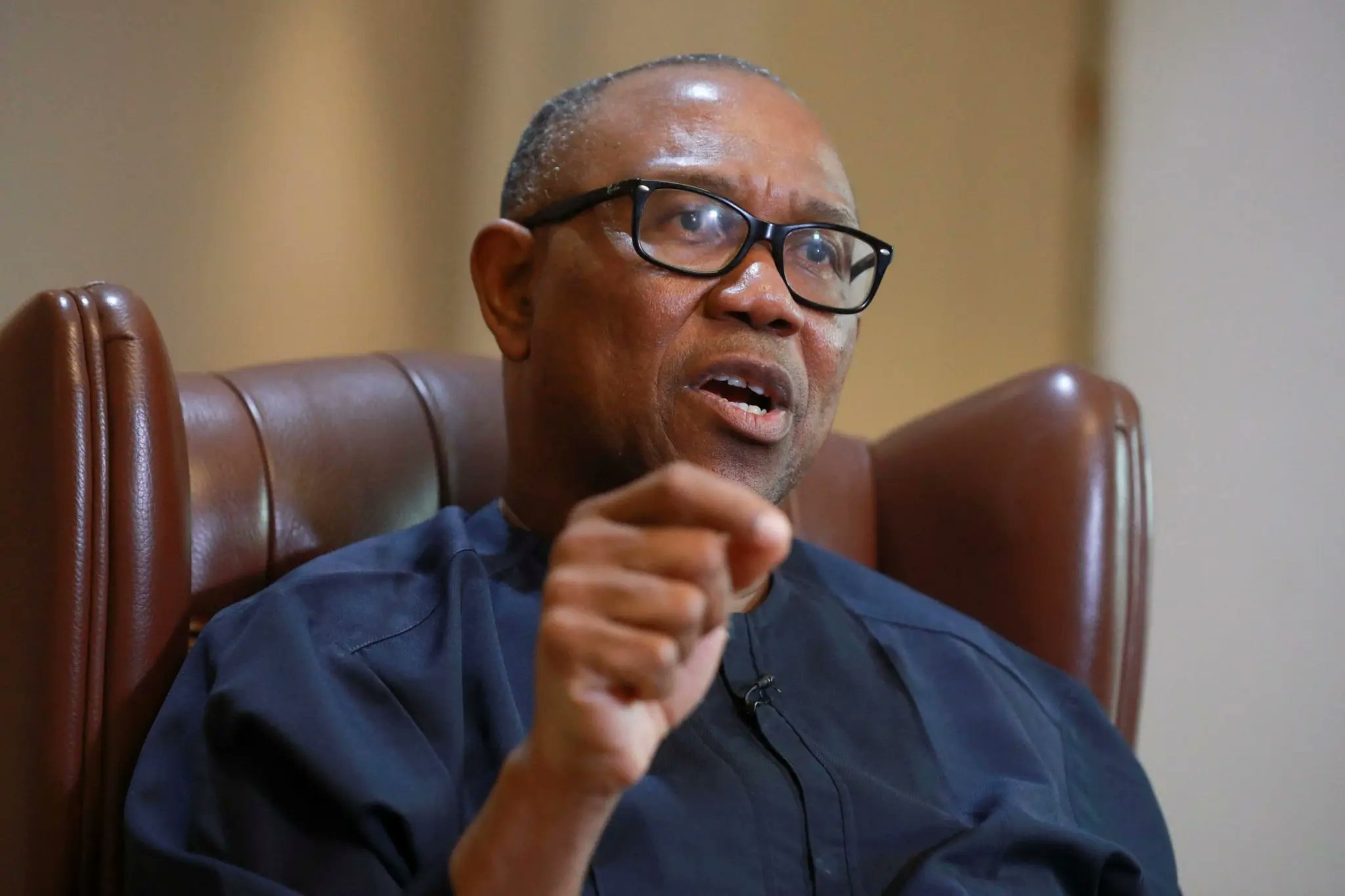
"I Left Billions Untouched Because I'm Not a Thief" — Peter Obi Fires Back at Critics

In a bold and defiant declaration that is already sparking widespread debate across Nigeria’s political spectrum, former Anambra State governor and Labour Party presidential candidate, Peter Obi, has once again underscored his unique approach to governance by revealing that he left behind a staggering ₦36 billion and $150 million in state funds when he left office. Speaking with characteristic candor, Obi challenged the pervasive corruption narratives that have plagued Nigerian politics for decades, stating bluntly, “If I were a thief, I would have stolen it.”
The revelation, which surfaced during an interview covered by Daily Post Nigeria, has reignited conversation around public accountability, integrity in office, and the contrast between leadership styles in Nigeria’s troubled political landscape. Obi, known for his frugal and technocratic leadership during his tenure as governor of Anambra State from 2006 to 2014, appeared to be throwing down the gauntlet not only to his critics but to the broader political class. In a country where stories of missing billions and unexplained wealth are all too common, the former governor’s assertion has landed like a thunderclap.
Obi’s statement comes at a time when the Nigerian public is increasingly disillusioned with the moral bankruptcy of political office holders, many of whom have been accused or indicted for looting public coffers. Against this backdrop, Obi’s consistent emphasis on fiscal discipline and transparent governance has become a defining feature of his public persona — and, arguably, the bedrock of his cult-like support, particularly among Nigeria’s youth.
According to the former governor, the funds he left untouched were not just idle reserves. The $150 million was carefully invested in three Nigerian banks, earning interest for the state, while the ₦36 billion was allocated across various development accounts and bonds. He clarified that these were not savings he personally claimed credit for but assets belonging to the people of Anambra, safeguarded for continuity and long-term growth. “I could have walked away with those funds and no one would have known. But public office is not a jackpot. It’s a trust,” Obi stated firmly.
This declaration is not Peter Obi’s first attempt to separate himself from the typical Nigerian politician. During his 2023 presidential campaign, he regularly told Nigerians to “go and verify” his records, highlighting his refusal to accept security votes, his modest lifestyle, and his insistence on cutting costs throughout his administration. While his opponents often accuse him of sanctimony or political posturing, many Nigerians see his conduct as a breath of fresh air in a system where impunity is the rule, not the exception.
Analysts note that Obi’s comments are as much a defense as they are a political offensive. Since leaving office, the former governor has been dogged by allegations from detractors who accuse him of hypocrisy or question his track record. Some critics point to his name being mentioned in the Panama Papers and Pandora Papers leaks, where he was accused of owning offshore companies allegedly not declared to the Code of Conduct Bureau. Obi has consistently defended himself, insisting that he did not break any Nigerian laws and that his financial activities were above board. His latest statement may well be another move to reclaim the narrative and reinforce his image as Nigeria’s most credible reformist.
The timing of his statement is also politically significant. As Nigeria lurches toward another cycle of electoral politics, with permutations already building toward 2027, Obi’s reaffirmation of his record could be an early signal that he remains firmly in the race. Although he narrowly lost the 2023 election, his movement, Obidients, has remained one of the most vocal and mobilized political groups in the country. For many of his supporters, the news of billions left untouched only deepens their belief in his “New Nigeria” agenda — a vision centered on accountability, youth empowerment, and prudent economic management.
Still, questions remain. Can one man’s record truly transform the political system? And is Obi's clean image enough to sway the entrenched forces of Nigerian politics? While the former governor’s statement is commendable, it has also been met with skepticism from some quarters. Critics argue that transparency should go beyond speeches and figures — they demand independent audits and hard evidence. Others accuse Obi of political grandstanding, suggesting that his self-praise does little to solve the country’s dire socio-economic crises.
Yet, the power of symbolism cannot be ignored. In a country battered by decades of systemic corruption, even the idea that a governor could leave behind such massive resources untouched is revolutionary. Whether exaggerated or not, the message resonates: Nigeria deserves better, and leadership is about service, not plunder.
For many Nigerians struggling under the weight of economic hardship, rising insecurity, and battered public institutions, Peter Obi’s words are more than political rhetoric — they are a reminder of what governance could look like. In a nation where trust in government is at an all-time low, Obi is positioning himself not just as an alternative but as a moral compass.
His critics may demand more proof, but the fact that his statement has gone viral and sparked renewed conversation about public integrity shows how deeply his words have struck a chord. In a democracy like Nigeria’s, where public cynicism often borders on despair, even a shred of hope can be powerful.
Peter Obi’s declaration — “If I were a thief, I would have stolen it” — is not merely a boast; it is a challenge to the rest of Nigeria’s political elite. It asks a simple but searing question: if you were in his shoes, would you have done the same?
As Nigeria continues to wrestle with its future, that question may ultimately determine whether the country remains trapped in the vicious cycle of corruption -or finally breaks free.


